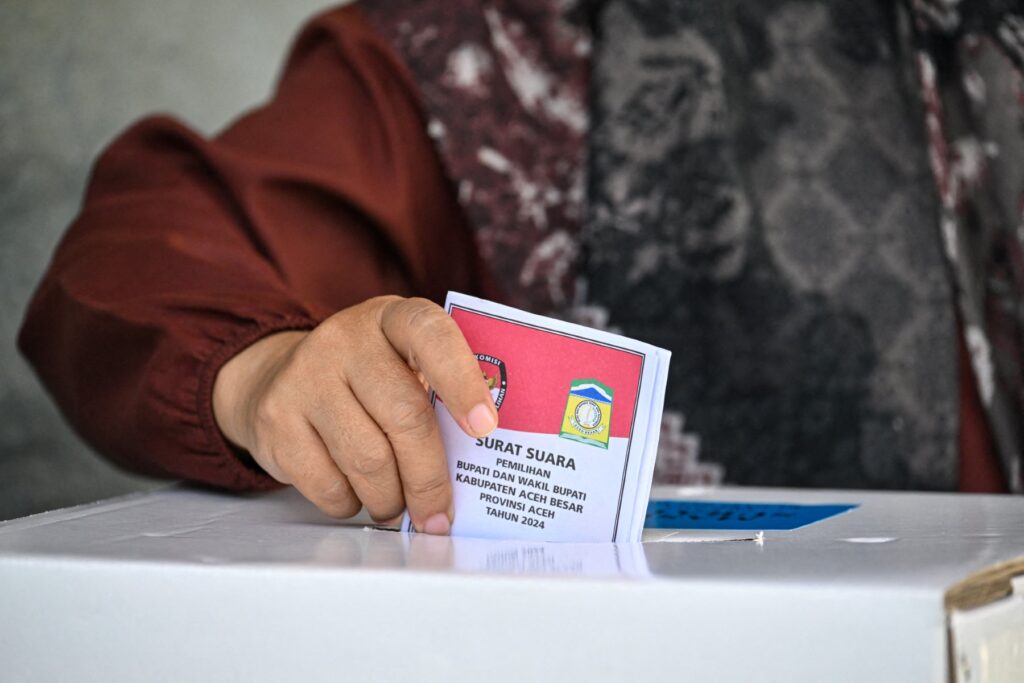June 30, 2025
JAKARTA – In a move hailed as a step toward a more democratic electoral system, the Constitutional Court has ruled that elections for national and local offices must be held separately, scrapping the “five ballot boxes” format long criticized for overburdenening voters, parties and election organizers.
During a hearing on Thursday, the court ruled in favor of the Association for Elections and Democracy (Perludem), which filed a judicial review petition challenging the 2017 General Elections Law, and declared that the current format of simultaneous polls has undermined the quality of elections and weakened the democratic process.
Until the last election in 2024, voters cast five different ballots on the same day to select their presidential-vice presidential pair, as well as members of the House of Representatives, Regional Representative Council (DPD) and Regional Legislative Council (DPRD) at the provincial and municipal or regental level.
But the court ordered that starting in 2029, the elections must be held on two separate dates, with local elections for regional heads and DPRD to take place no sooner than two years, but no later than two-and-a-half years, after the presidential and national legislative polls.
The decision to split the elections was an attempt to “realize quality elections” while considering “the convenience and simplicity for voters” in exercising their rights to vote as “an embodiment of popular sovereignty”, Deputy Chief Justice Saldi Isra read in the ruling on Thursday.
Read also: House considers new omnibus law to revise election rules
The court did not set a specific date for when the future elections should be held. Instead, they left it to the House, which is planning to overhaul regulations on elections, to decide the scheduling details.
The legislature is also expected to address the transition periods for local officials, whose terms end in 2029. Should the national general elections be held that year, the regional elections will not take place until 2031.
More effective system
Thursday’s ruling was hailed by civic groups, including Perludem, which called it an important step in reforming Indonesia’s electoral system” expected to better accommodate voters, political parties and poll organizers.
“This is a very important ruling to address the fundamental complexities we have faced in managing simultaneous elections,” Perludem’s Fadli Ramadhanil said during an online discussion on Friday.
Indonesia first introduced the simultaneous presidential and legislative elections for the 2019 poll, following a revision of the General Elections Law in 2017. Policymakers then argued that holding elections on separate timelines kept the country in near-constant political campaign mode, fueling prolonged politican tensions and increasing budgetary pressures.
They pushed the reform further by introducing an amendment to the Regional Elections Law, requiring regional polls to be held in the same year as the national ones starting in 2024, with an ultimate goal of bringing all elections into a single five-year cycle.
But the simultaneous five-ballot elections of 2019 and 2024 have been criticized for placing an “extraordinary burden” on election organizers, making it harder for voters to make informed decisions and limiting political parties’ ability to prepare quality candidates, according to the Democracy and Election Empowerment Partnership (DEEP) Indonesia.
“This ruling marks a significant milestone in reforming Indonesia’s democratic institutional design,” said DEEP Indonesia’s Neni Nur Hayati. “It especially helps in developing an electoral system that is more effective, efficient and fair.”
The group called on the House to follow through the court’s ruling by amending the laws on general elections and regional elections, asserting that future deliberations in revising the regulations must be carried out “openly, participatively and free from short-term elite political interests”.
Term extensions?
Muhammad Rifqinizami Karsayuda, chair of House Commission II overseeing home affairs, said the ruling would be an important part of the upcoming revisions to election-related legislations.
He added that Commission II would carefully study how best to implement the court’s decision, including how to address the potential vacuum of power when local officials’ terms expire before the next round of regional elections.
“We need new norms regulating the transitional period,” said the NasDem lawmaker.
“For governors, regents and mayors, we can appoint acting officials [to serve until 2031] like we’ve done in the past. But for councilors, the only option may likely be to extend their terms,” he continued.
Read also: House, govt to begin drafting revision on presidential nomination rules
Plans to revise the election-related laws would not be discussed in the current House sitting period that is set to run until July 24, said Deputy Speaker Sufmi Dasco Ahmad, adding that discussions among political party factions remain on an informal level and have not reached consensus.
“Because this is something new, we need opinions from experts who understand constitutional matters,” the Gerindra Party politician said. “That’s why the House will proceed with caution.”

